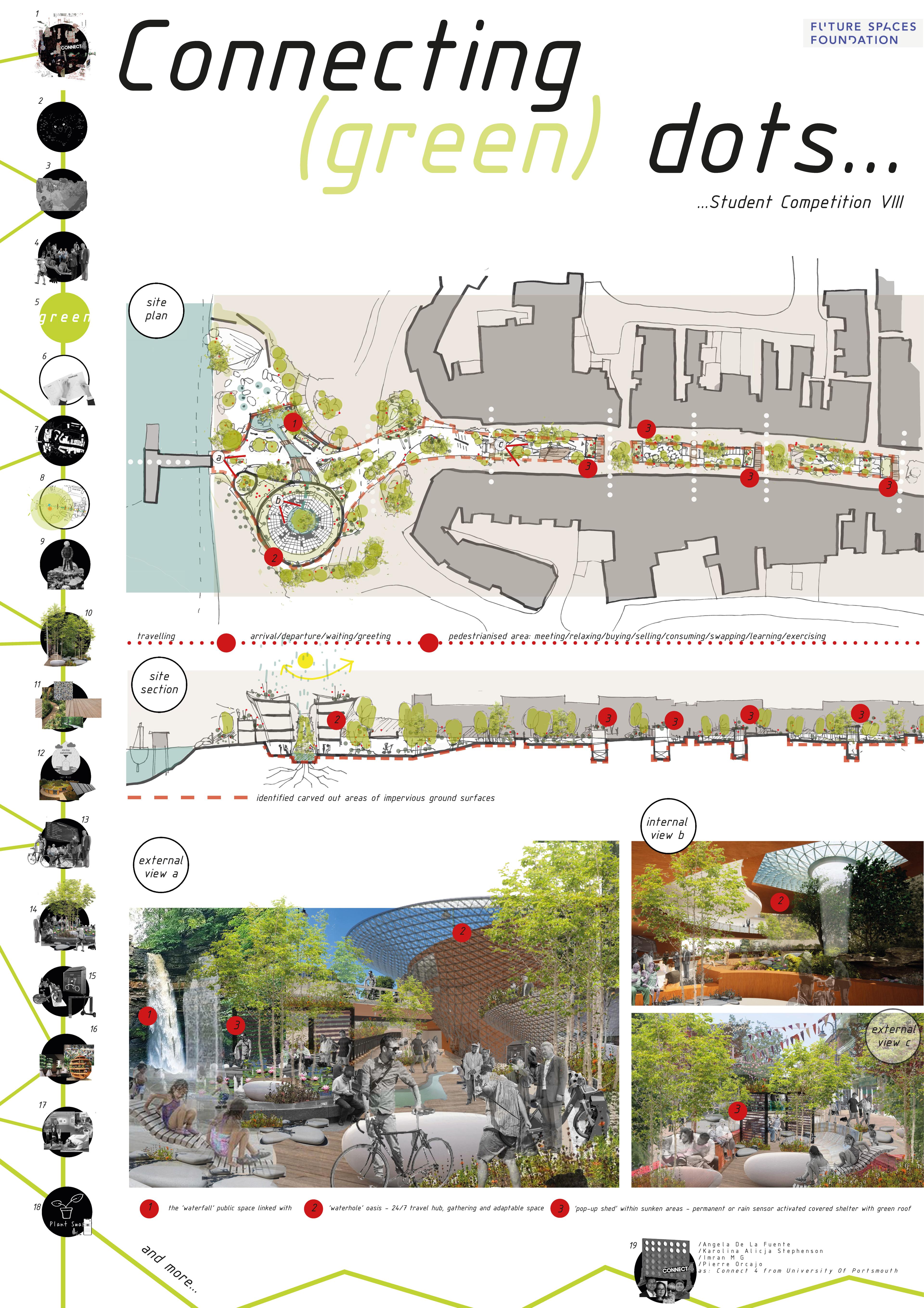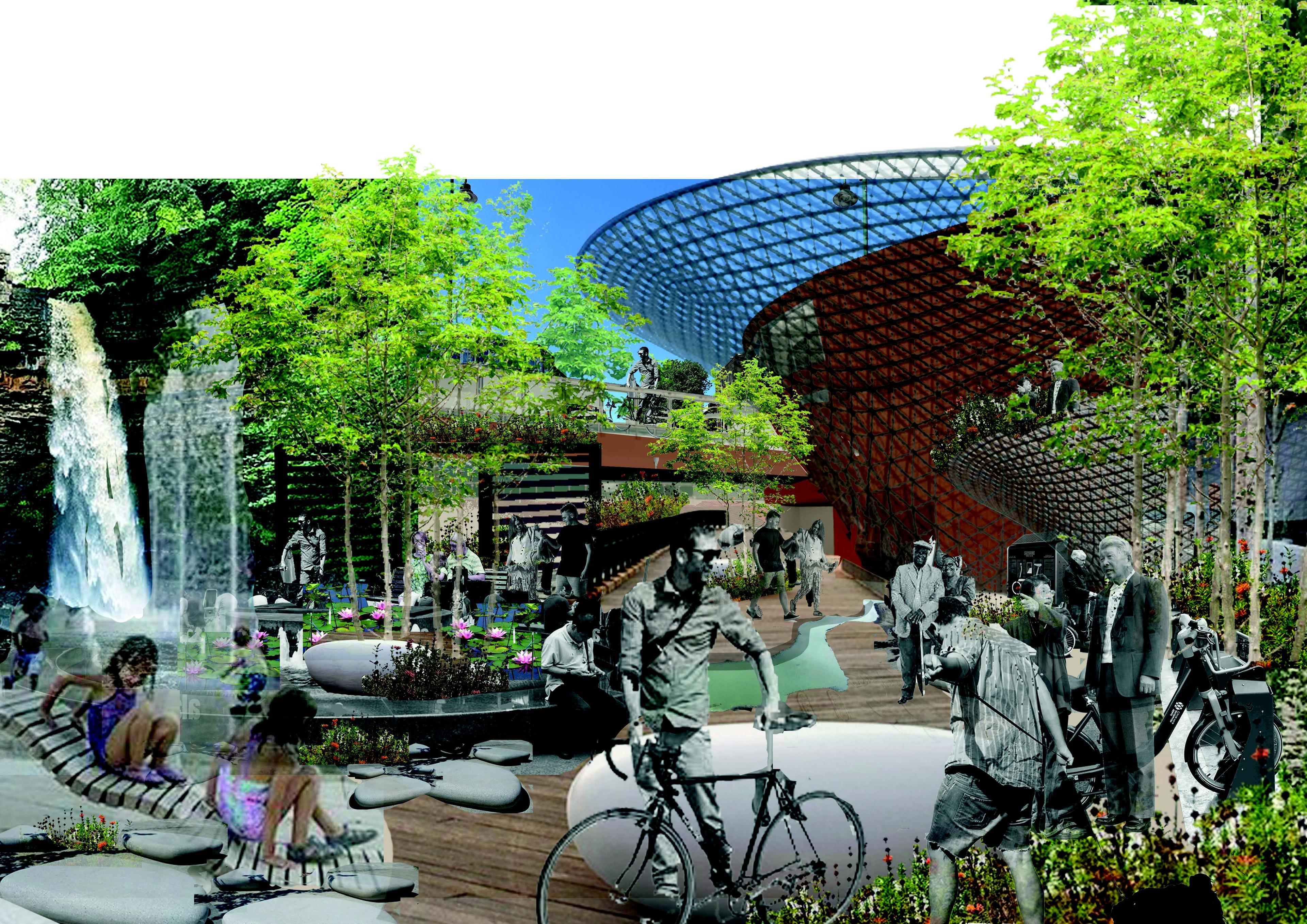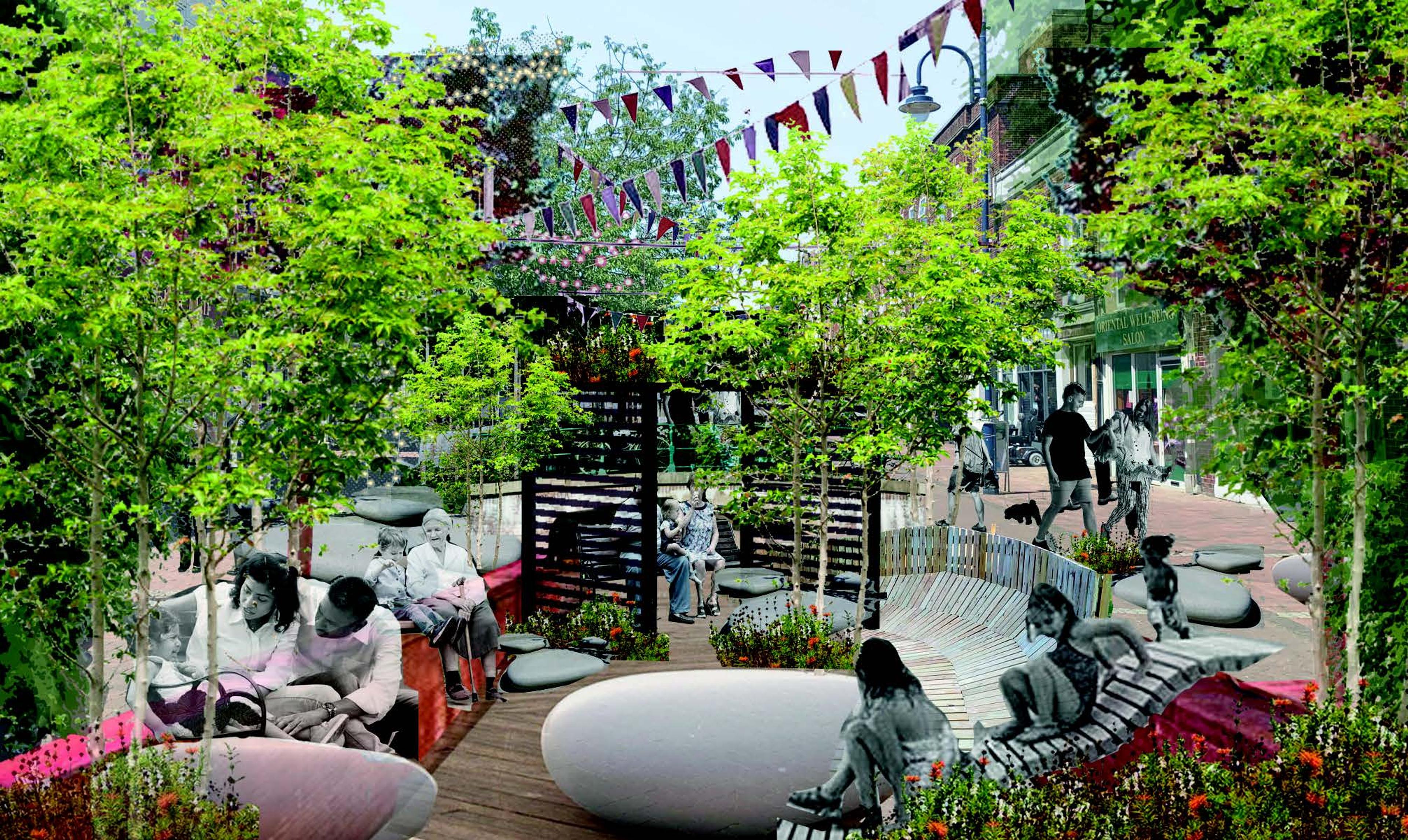Connection
University of Portsmouth
Angela De La Fuente, Imran Mahmoud Galadanci, Pierre Orcajo, Karolina Stephenson
We propose a masterplan concept with a framework for adaptable, sustainable and inclusive space. The idea is to provide a template that uses nature as a binding element to prioritise social activity and help navigate the issues facing vital cities.
The framework can be used to analyse urban scales for existing links and intersections, then to carve out areas to introduce nature and other interventions, including bridges that create life on different levels and building forms that are active 24/7. There’s an emphasis on using water and greenery to enable activities that promote footfall: meeting, relaxing, buying, selling, consuming, swapping, learning, exercise.
One of our primary interventions is a ‘waterhole’ – a hub designed as a central gathering point. Its primary use is for crossover human activity like waiting, arrival and departure; it also has disguised uses like incidental socialising, education and ecology. We envision it as a space that promotes sustainable travel and has pop-up uses too, like rental spaces for group activities, co-working and exhibitions.
We used an existing naval city as a case study for our framework. We started by analysing its existing links and intersections, exploring how to resurface impermeable areas like tarmac and replant them with informal landscaping that prioritises native species. From here, we proposed new buildings and infrastructure with sustainable design practices like rainwater harvesting.



